Choosing the right legal representation can be a daunting task, but it doesn't have to be. With so many options available, understanding what to look for in a lawyer can make all the difference in your case's outcome. From assessing their experience and expertise to evaluating their communication style, knowing the key factors to consider will lead you to the best choice for your needs. Dive into our article to discover the essential steps in selecting the perfect legal representative!

Attorney qualifications and expertise
When selecting a legal representative, the qualifications and expertise of an attorney play a crucial role in ensuring effective legal counsel and representation. A well-qualified attorney should possess a Juris Doctor (JD) degree from an accredited law school, demonstrating foundational legal education. Relevant experience is essential, especially in areas such as family law, criminal defense, or corporate law, depending on the specific legal needs. Membership in state or national bar associations signifies adherence to professional standards and ongoing education in legal practices. Additionally, a strong track record of successful case outcomes, which may include trial experience or settlements, can indicate an attorney's capability to navigate complex legal issues. Client testimonials and peer reviews provide insight into the attorney's reputation, communication skills, and dedication to client service. Legal certifications, such as specialization in a specific practice area or recognition from legal organizations, further emphasize the attorney's expertise and commitment to excellence in their field.
Fee structure and billing practices
Selecting legal representation involves understanding the fee structure and billing practices of a law firm. Most firms operate on various models, including hourly rates, flat fees, or contingency fees (typically ranging from 25% to 40% of the settlement amount in personal injury cases). It is essential to inquire about retainer fees, which may require upfront payments--often $1,000 or more depending on complexity. Billing practices can vary, with some firms providing detailed invoices that outline hours worked, tasks completed, and rates applied. Additional costs such as court fees, document preparation charges, and administrative expenses must also be discussed. Transparency in communication regarding billing is crucial to avoid unexpected expenses during the legal process. Understanding these financial elements can help clients make informed decisions about the right legal representation for their needs.
Communication methods and availability
Selecting a legal representative involves understanding communication methods and availability to ensure effective collaboration. Many law firms offer diverse communication channels, including phone calls, emails, and secure client portals for document sharing. Availability can vary significantly; some attorneys maintain regular office hours (generally 9 AM to 5 PM) while others might provide after-hours consultations, accommodating clients' schedules. Accessibility should also include response times; prompt replies within 24 hours are often expected. Geographic considerations may influence communication as well; attorneys practicing in metropolitan areas like New York City may have different outreach capabilities compared to those in rural settings. Understanding these factors will help clients choose a legal representation that aligns with their needs and expectations.
Conflict of interest policies
Selecting legal representation requires careful consideration of conflict of interest policies. Legal firms adhere to strict guidelines aimed at preventing conflicts that could compromise the integrity of their services. A typical policy dictates an exhaustive assessment of existing or potential relationships with parties involved in the case. This process often involves a thorough review of past dealings, affiliations, and any financial interests that might influence judgment or actions. For instance, if the firm has previously represented a client with opposing interests, this could trigger disqualification from representing another party in a similar matter, in accordance with legal ethics established by local bar associations. Transparency is vital, with clients being informed about any potential conflicts and given the opportunity to seek alternative counsel if necessary.
Client-attorney confidentiality agreement
A client-attorney confidentiality agreement serves as a formal bond ensuring that all communications between the client and attorney remain protected under attorney-client privilege. Essential terms include the definition of confidential information, outlining what constitutes sensitive material shared during consultations or negotiations. This agreement, rooted in legal ethics and standards, typically includes stipulations on the duration of confidentiality, responsibilities of the attorney in safeguarding this information, and exceptions in cases of imminent harm or required reporting under law. In jurisdictions such as California (notably governed by the California Business and Professions Code Section 6068(e)), these provisions are critical in maintaining trust and fostering an open dialogue for effective legal representation.

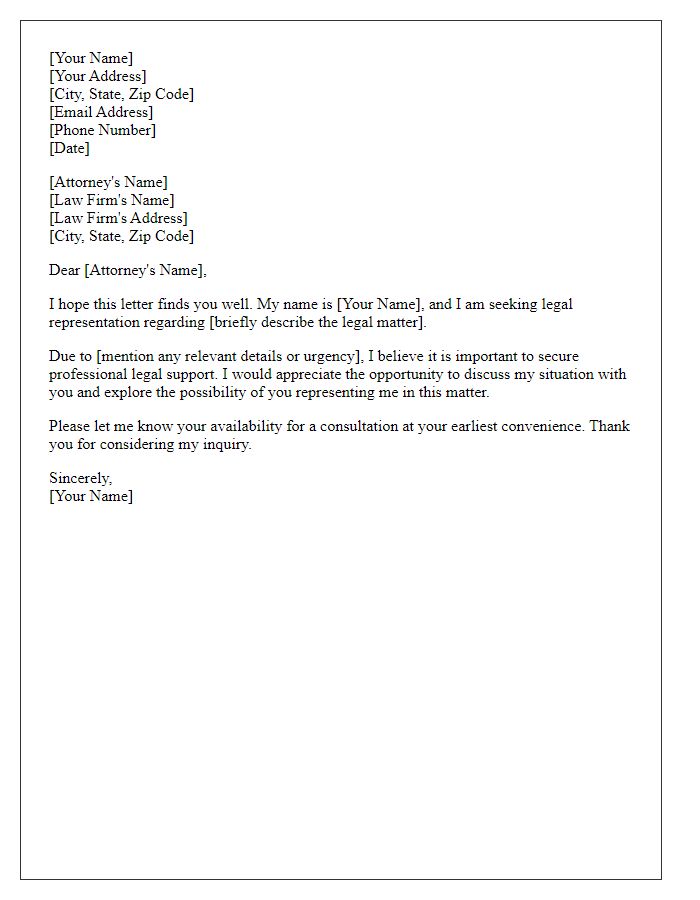
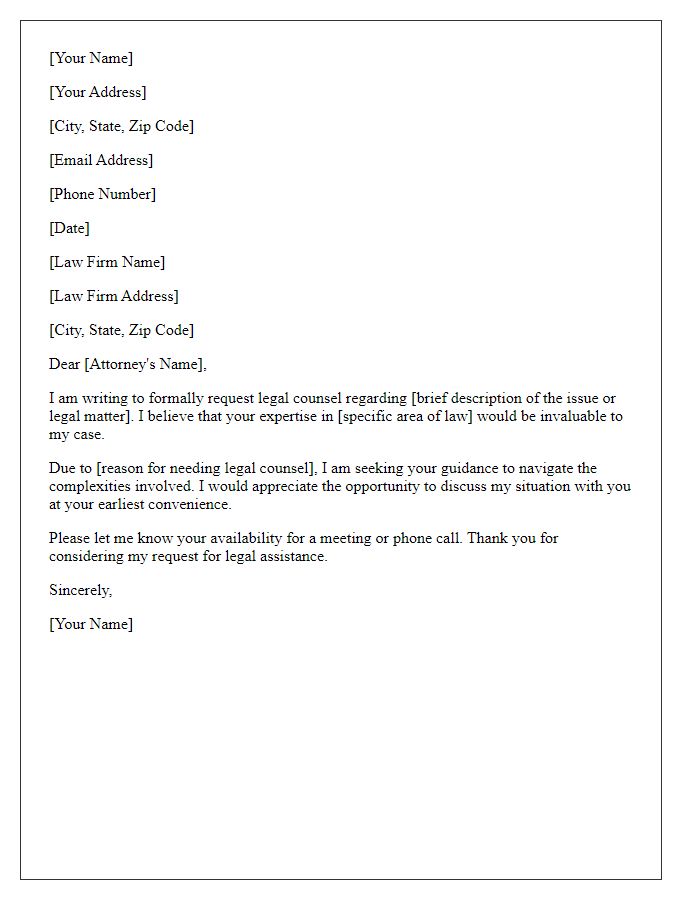

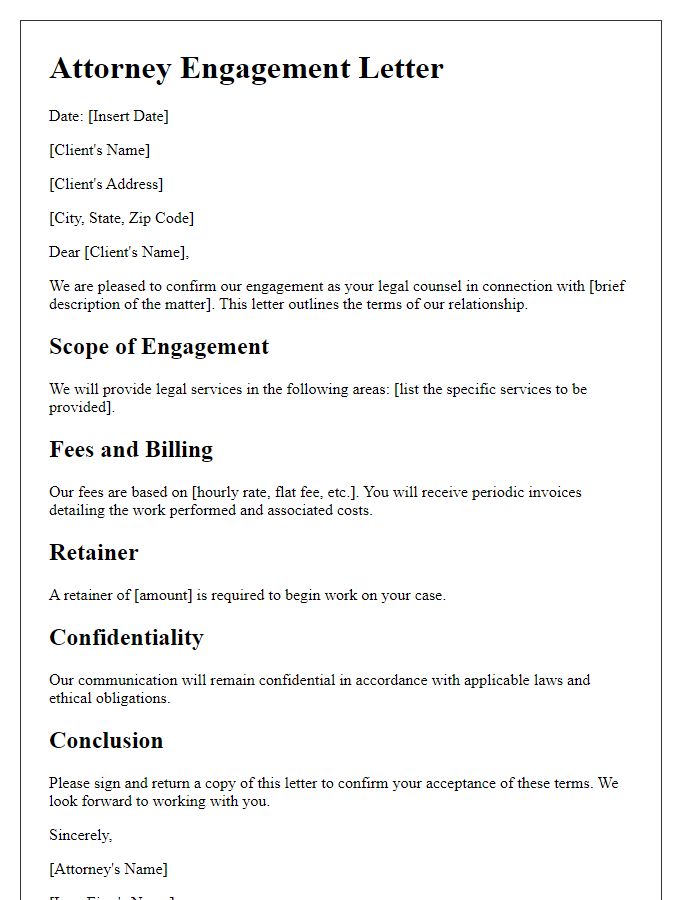
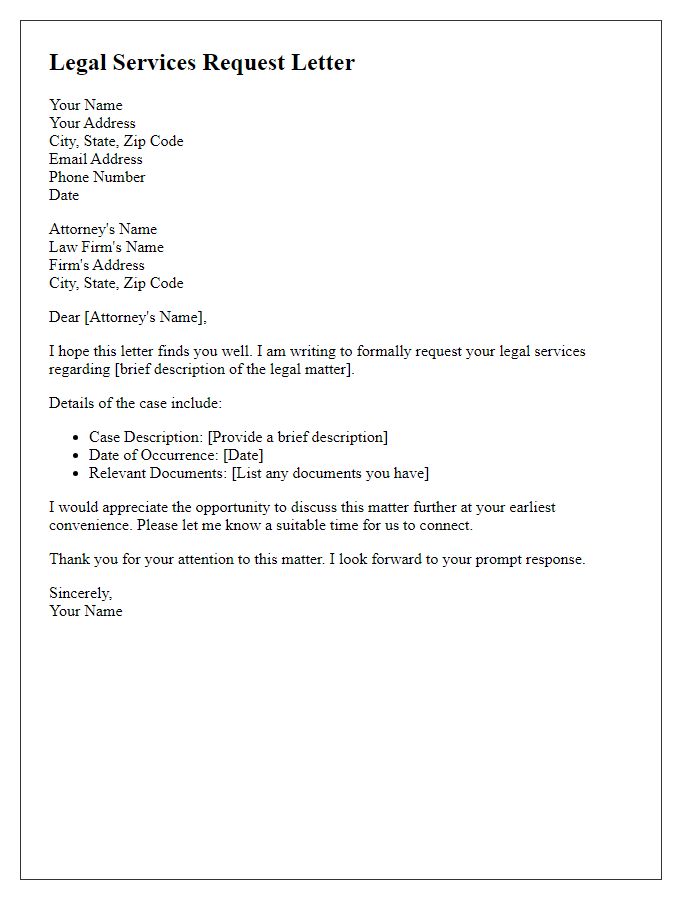
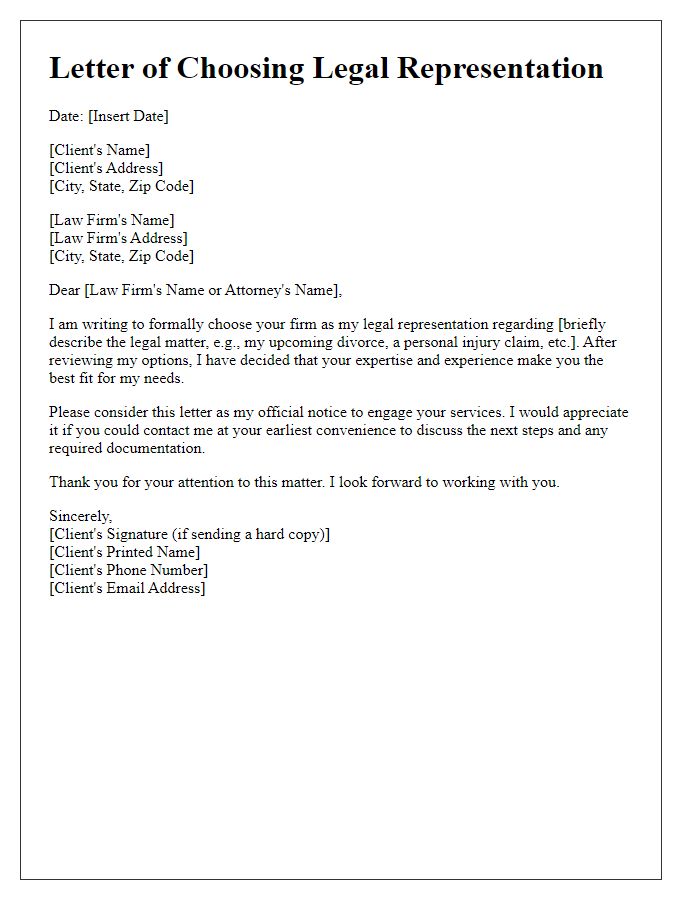
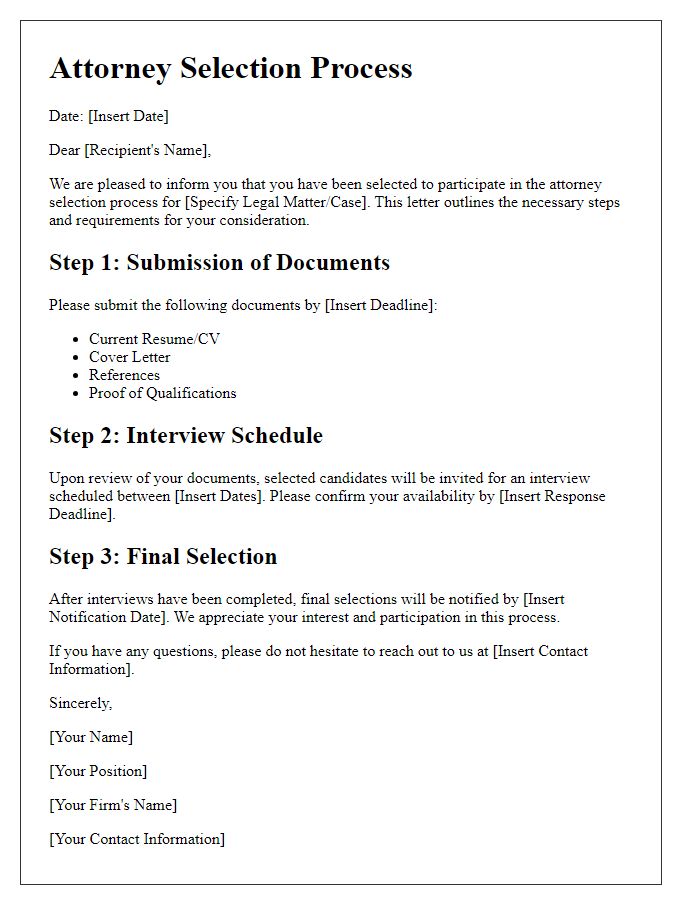
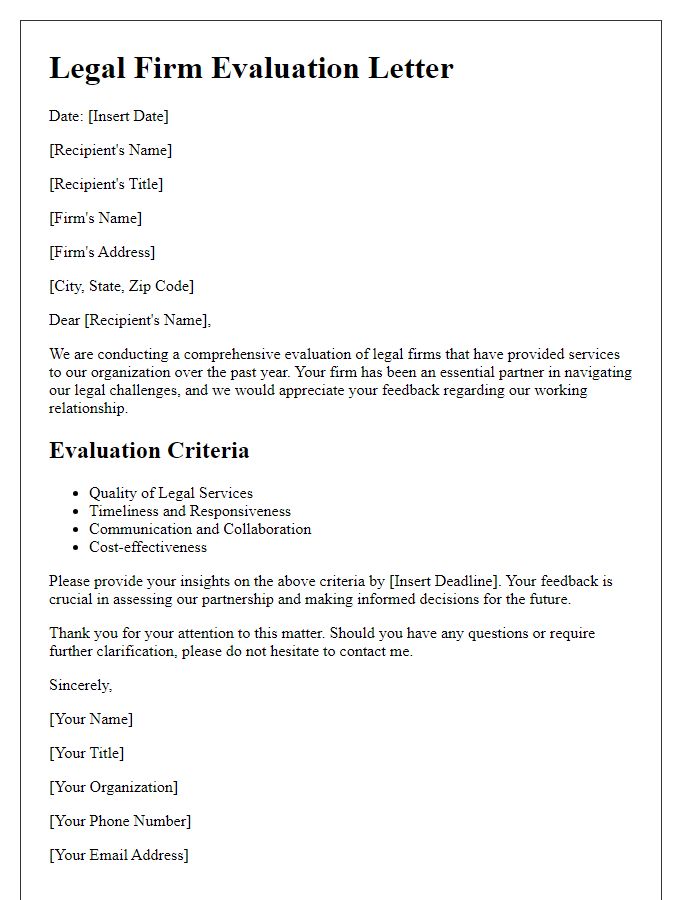
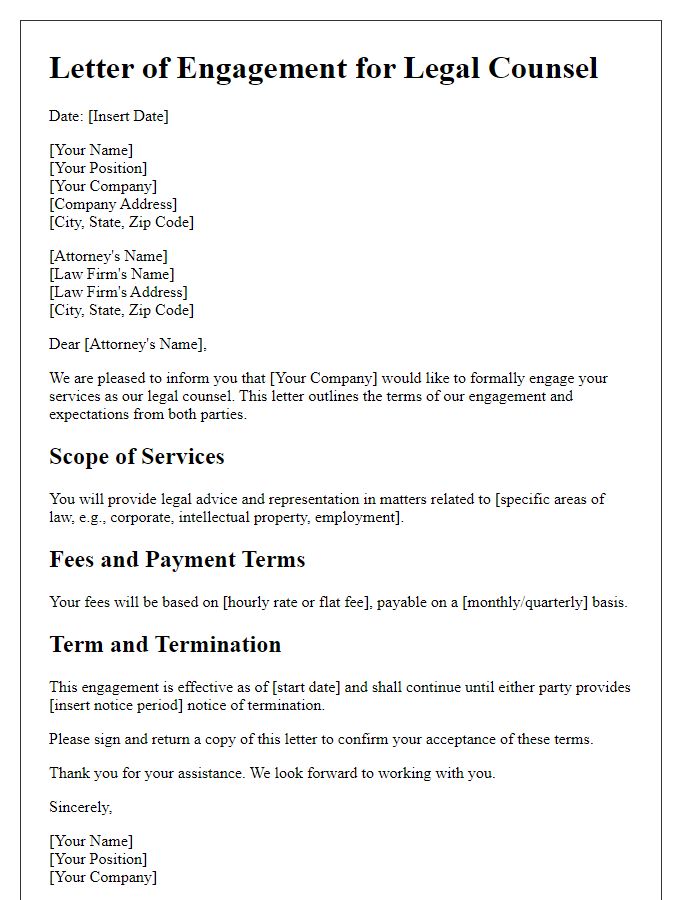
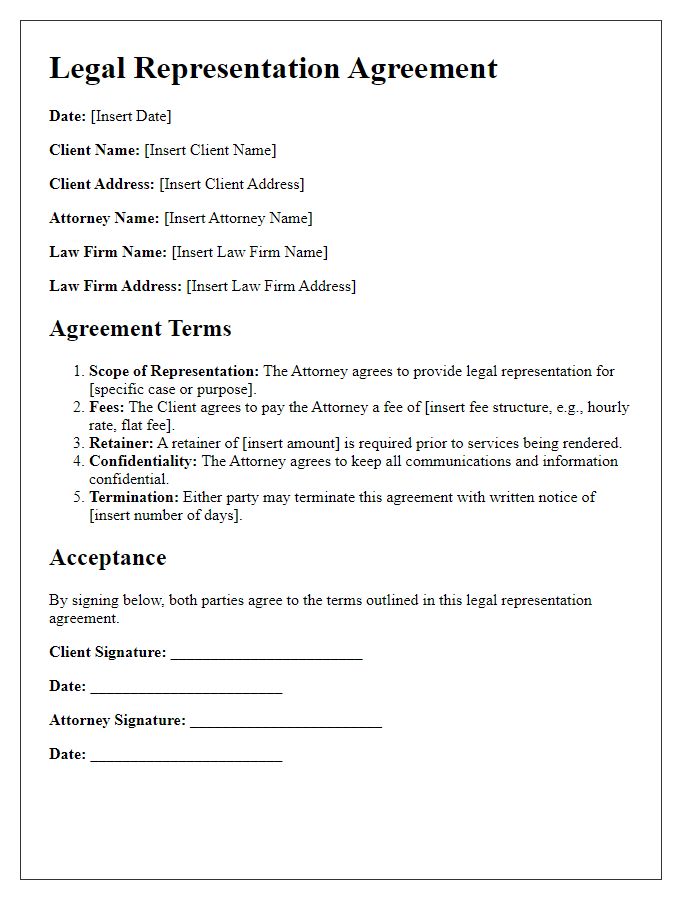


Comments